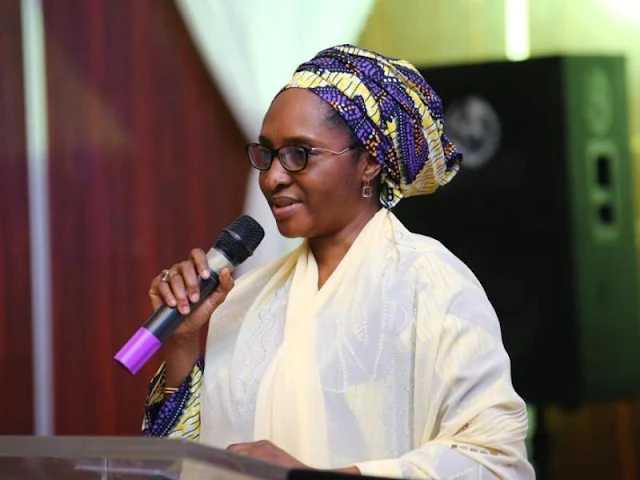The National Plan for Financing Safe Schools-2023–2026 was unveiled Monday in Abuja by Zainab Ahmed, minister of finance, budget, and national planning. An estimated N144.8 billion would be invested in the Plan overall between 2023 and 2026.
The Plan recommends spending N32.58 billion in 2023, N36.98 billion in 2024, N37.15 billion in 2025, and N38.03 billion in 2026 over the ensuing three years.
According to the minister, only N15 billion of the total project budget has been allotted, leaving a N13.6 billion funding deficit in 2023. State governments, organisations, the corporate sector, and development partners interested in helping Nigeria are supposed to fill this gap.
According to the finance minister, the federal government intends to boost Nigeria's GDP from its current $4 trillion to $12 trillion by 2050, with a GDP growth of 7% on average and a final period per capita income of $33,000.
The government's development agenda (Agenda 2050), which is now being finalised by the Ministry of Finance, Budget, and National Planning, includes the prediction.
The national plan aims to lessen the consequences of urgent development issues and assist the nation in moving up to upper-middle-income countries by putting into practice a strategy for long-term economic transformation.
Her statement that "these lofty targets can only be realised if all critical stakeholders collaboratively create safer teaching and learning environments across Nigeria through critical intervention investments" emphasised the significance of validating and costing out plans of action before putting them into action.
The Department of State Service's director-general, Yusuf Magaji Bichi, has promised to use the department's tactical and human resources to safeguard schools against thieves and terrorists while cooperating with other security organisations. The DSS has committed to creating risk-free learning environments in all schools.
Reduced absenteeism and an improvement in Nigeria's position on the human capital index are among the long-term objectives of the data-driven national plan for financing safe schools.
To “ensure we safeguard our teaching and learning environments,” the finance minister urged all relevant parties to prioritise funding the specified costed plans of action.
In a cross-cutting priority area that Ahmed described as getting a massive lift from the success of the National Plan on Financing Safe Schools, the present administration has placed a heavy emphasis on improving the health, education, and productivity of Nigerians.
The Inspector-General of Police, Alkali Baba Usman, also sent a goodwill message. He mentioned that the Chibok Girls incident had made people more aware of the lack of safety in schools.
“We need to keep schools safe to produce future leaders. The structure, standard, discipline, curriculum, teachers, and extracurricular activities must be protected.”
Schools cannot be protected just by administration and parents. Thus he urged cooperation and coordination among all parties involved.
Mr Goodluck Nana Opia, the Minister of State for Education, made a public statement in which he called for the creation of a state strategy to ensure that students’ education would continue even if schools were closed due to violence or other unsafe conditions.



